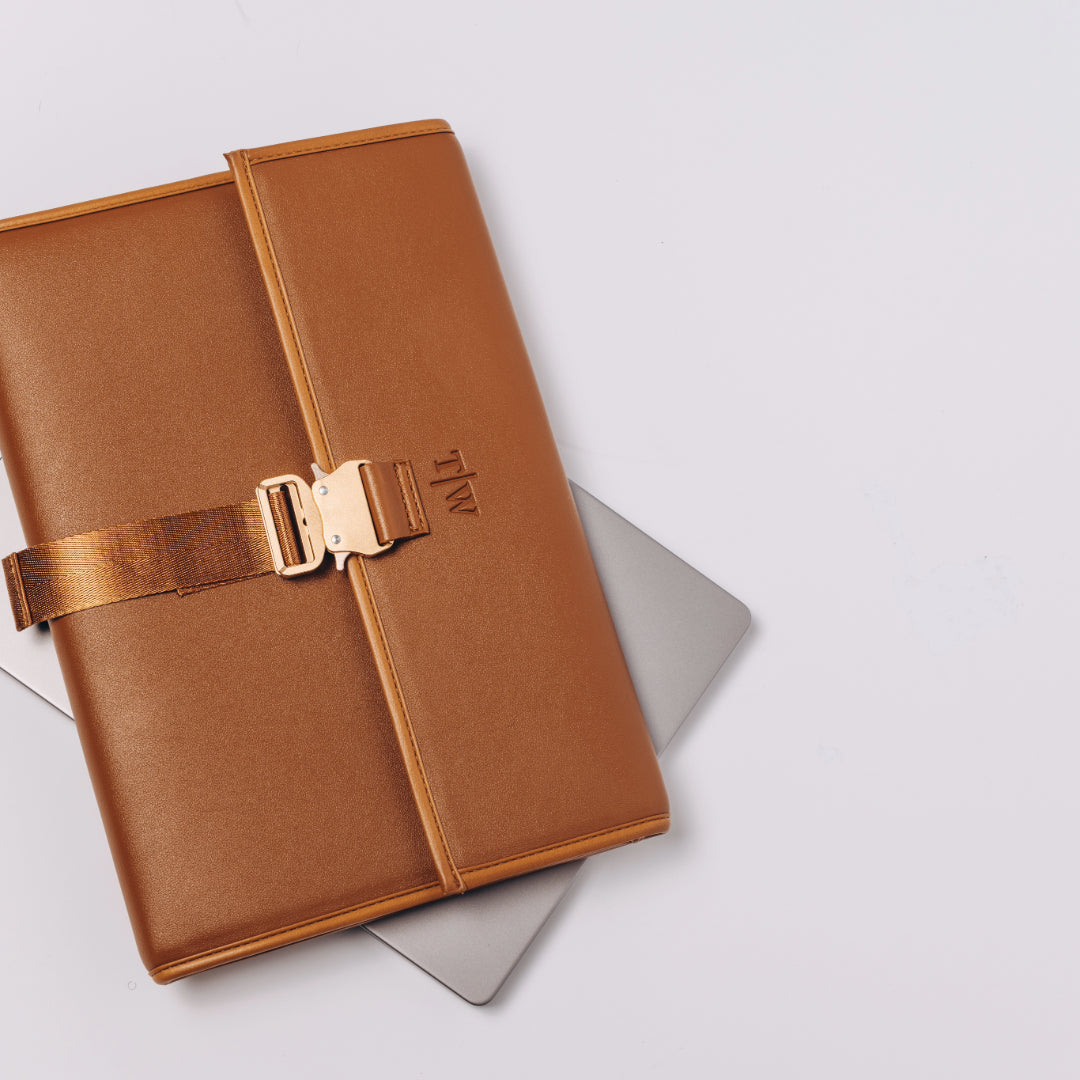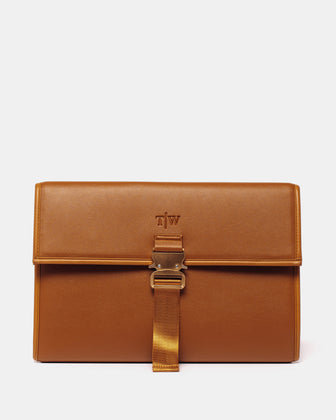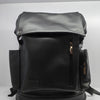

Imagine you’re at the airport, ready to check in, when a sudden thought crosses your mind—Can laptops go in checked baggage? You glance at your bag, then at the airline counter, wondering if you should risk it. What if it gets damaged? What if it disappears? What if some obscure rule you don’t know about gets your laptop flagged?
With travel regulations changing and security concerns rising, many travelers are caught in this exact dilemma. Can you check a laptop? Are laptops allowed on planes, or should they always stay with you? Before you decide, it’s crucial to understand the rules, risks, and best practices. Whether you’re a frequent flyer or an occasional traveler, knowing where to pack your laptop could mean the difference between a smooth trip and a costly mistake.
So, should you toss your laptop into checked luggage or keep it close? Ultimately, we aim to clarify the question: Can laptops go in checked baggage?
Many travelers face uncertainty about whether laptops can be placed in checked baggage.
Understanding airline policies, risks, and best practices can help travelers make the right decision.
Proper laptop storage ensures a hassle-free trip.
Understanding Airline and Security Regulations
Air travel comes with strict security guidelines, especially regarding electronic devices. If you’ve ever wondered, Can laptops go in checked baggage? The answer isn’t as straightforward as you might think. Different authorities and airlines have specific rules to ensure passenger safety and prevent potential hazards. Knowing these regulations can help avoid delays, fines, or device confiscation.
The TSA laptop rules are clear: laptops are allowed in checked and carry-on luggage, but passengers are strongly advised to keep them in their carry-on bags . This is because laptops stored in checked baggage are at a greater risk. Can you check a laptop? The TSA does not prohibit it, but it’s not recommended.
Beyond TSA, the International Air Transport Association (IATA) provides guidelines for airlines worldwide. Their regulations address whether laptops are allowed in carry-on and checked luggage on planes.
While global aviation authorities set general rules, individual airlines may impose additional restrictions. Can you put a laptop in a checked bag? The answer depends on the airline. Some carriers strictly enforce policies requiring laptops to remain in carry-on bags, while others may allow them in checked baggage under certain conditions.
For instance, certain international airlines have banned laptops in checked baggage due to fire risks. Case studies have shown that overheating lithium-ion batteries can cause serious in-flight incidents. Some airlines also impose stricter rules on using a laptop on a plane, limiting their use during takeoff and landing.
Before you travel, always check the latest airline policies to ensure compliance. Understanding these regulations can help you travel without complications, whether packing your laptop on a plane or deciding whether to check it.
Before you travel, always check the latest airline policies to ensure compliance.
Risks Associated with Placing Laptops in Checked Baggage
Should I put my laptop in checked luggage? It might seem convenient, especially if your carry-on is full. But before you zip up your suitcase, consider the risks. Checking a laptop comes with potential downsides. Knowing these dangers can help avoid damage, loss, or flight disruptions.
Physical Damage
Airline baggage handling is far from gentle. Laptops in checked baggage face rough treatment, including being tossed, stacked under heavy luggage, or exposed to sudden impacts. This increases the risk of cracked screens, broken hinges, and internal component failure.
Additionally, cargo holds experience pressure changes during flight. While aircraft cabins are pressurized, baggage compartments may not offer the same level of protection. This can affect your laptop’s performance over time.
Theft and Loss
Keeping valuables out of sight in checked luggage increases the risk of theft. A laptop in checked luggage is an easy target for baggage handlers or thieves, especially if the bag is left unattended during transit. Unlike carry-on bags , which always remain with you, checked bags can be lost, delayed, or misplaced by airlines.
According to airline industry reports, thousands of bags go missing every year. If your laptop is inside one of them, recovering it can be difficult, and airline compensation is often limited. Before you decide, ask yourself: Can you put a laptop in a checked bag without worrying about security? The answer is rarely yes.
Fire Hazards
A major concern with storing laptops in checked baggage is the risk of lithium-ion battery malfunctions. These batteries can overheat, short-circuit, or even catch fire if damaged. Cargo holds may not have the same fire suppression systems as the cabin, making a battery fire in checked luggage extremely dangerous.
In fact, some TSA laptop rules and international airline policies have changed due to incidents involving battery-related fires in cargo holds. According to IATA, lithium-ion batteries must meet specific watt-hour limits. Many airlines strongly recommend that passengers carry laptops in their hand luggage instead.
Carry-on luggage is safer, reducing mishandling, loss, and overheating risks.
Best Practices for Traveling with a Laptop
A laptop is more than just a device. It’s a work tool, entertainment hub, and personal data store. Keeping it safe is essential whether you’re traveling for business or leisure. However, a common dilemma arises when packing. While storing it in a suitcase might seem convenient, this decision comes with risks.
Carry-On vs. Checked Baggage
Bringing your laptop on a plane in your carry-on is the safest option. It stays in your possession, reducing the chances of mishandling, theft, or exposure to extreme temperatures. Most airlines and security agencies, including the TSA laptop rules, require passengers to remove laptops from their bags at security checkpoints unless they’re in TSA PreCheck.
However, in situations where carry-on space is limited, travelers may ask, Can you check a laptop safely? While possible, it requires extra precautions. A laptop in checked luggage is at risk of impact damage, theft, or even overheating. If you must check your laptop, power it down completely, pack it in a protective case, and cushion it between soft items.
Preventing Physical Damage
A laptop is a delicate electronic device that isn’t built to withstand rough handling. Baggage is often stacked under heavy suitcases or tossed onto conveyor belts, increasing the risk of screen cracks or internal damage. If you’re wondering, "Can you put a laptop in a checked bag without worry?" The answer is no—unless you take the proper precautions.
Use a padded laptop sleeve or a hard-shell case for extra protection. Avoid leaving accessories like chargers or external hard drives loosely packed, as they could press against the screen and cause damage. Cargo holds can also experience temperature fluctuations, impacting battery performance over time.
Data Security Measures
Even if your laptop arrives intact, losing access to important files can be a nightmare. Back up all essential data before traveling to cloud storage or an external drive. If you need to use a laptop on a plane, encrypt sensitive files and enable strong passwords to protect against unauthorized access.
For added security, enable two-factor authentication on important accounts and use a privacy screen to prevent onlookers from viewing your screen while working mid-flight. These steps help ensure your personal and professional data remain safe, whether your laptop stays in your carry-on or is in checked baggage.
Insurance and Documentation
Travel insurance can be a lifesaver if your laptop is lost, stolen, or damaged. Many policies cover electronics, but checking the fine print for coverage limits and claim requirements is essential. If traveling internationally, keep proof of ownership—such as receipts or serial numbers—on hand. Some countries require documentation for high-value electronics to prevent import tax issues.
If you must check a laptop, use a protective laptop sleeve.
Alternative Solutions for Travelers
Consider alternative ways to stay productive rather than worrying about whether a laptop in checked luggage is safe. Whether you want to travel light, avoid potential damage, or comply with airline regulations, these solutions can help you stay connected without the stress of packing a laptop in checked baggage.
Using Secondary Devices
If you must travel with a laptop but worry about potential loss or damage, consider bringing a less expensive or older model instead of your primary device. A lightweight Chromebook or tablet can handle basic tasks like browsing, emails, and document editing. That way, even if your laptop is lost or damaged in transit, it won’t be a devastating financial loss.
Cloud Computing and Remote Access
With advancements in cloud computing, many travelers no longer need to carry a laptop. Services like Google Drive, Dropbox, and OneDrive allow users to access documents, presentations, and spreadsheets from any device with an internet connection. Remote desktop applications also allow controlling a home or office computer from afar.
Instead of worrying about whether laptops are allowed on planes or stressing over security risks, travelers can rely on cloud-based solutions to work efficiently from any destination. This approach benefits short trips or business travelers who only need access to files rather than an entire workstation.
Renting Equipment at Your Destination
In many major cities, renting a laptop is a practical alternative to traveling with one. Business centers, coworking spaces, and electronics rental services offer short-term laptop rentals, allowing travelers to work without carrying expensive equipment. Hotels and conference centers often provide business facilities, reducing the need to pack a personal laptop. This eliminates concerns about TSA laptop rules, baggage mishandling, and theft, ensuring you have a functional device only when you truly need it.
A laptop is more than just a device. It’s a work tool, entertainment hub, and personal data store.
Conclusion
In summary, understanding whether can laptops go in checked baggage is a matter of balancing convenience against risks. We’ve examined the TSA laptop rules and various airline policies, highlighting that while laptops in checked luggage might be permitted under certain conditions, doing so exposes your device to potential damage, theft, and battery hazards.
The safest option is to keep your laptop in carry-on luggage whenever possible. This ensures you maintain control over your device, reducing the likelihood of mishandling, loss, or overheating in the cargo hold. If checking your laptop is unavoidable, taking precautions—such as using a protective case, backing up data, and ensuring compliance with security guidelines—is essential.
Ultimately, travelers should stay informed about changing airline policies and assess their personal risk tolerance before deciding.
TSA rules and airline policies help determine if checking a laptop is safe.
Carry-on luggage is safer, reducing mishandling, loss, and overheating risks.
If you must check a laptop, use a protective laptop sleeve.
FAQs
What is the best way to travel with my laptop?
Carrying it in your carry-on baggage is the safest and most recommended method.
What precautions should I take if I have to put my laptop in checked baggage?
Ensure it's powered off and in a well-padded laptop tote. Consider insurance. Back up your data. Never pack loose batteries.
Where can I find the specific rules for my airline?
Consult your airline's official website or contact customer service for their specific baggage policies.










